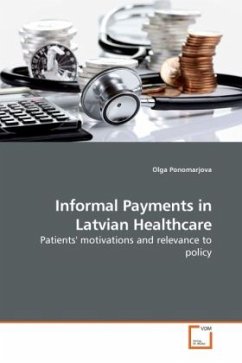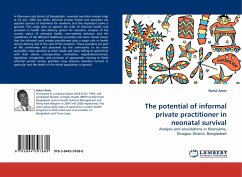Endemic to the Former Soviet Union countries, informal payments are a serious problem in Latvian healthcare, which creates inefficiency in the healthcare system, challenges the healthcare reform, and negatively impacts accessibility of healthcare services. Despite the growing interest of scholars in the issue, current theories on explaining and outlining the ways of dealing with this phenomenon are limited. Given the sensitive nature of the subject, theoretical and policy discussions are challenged by the lack of empirical data that would allow deeper understanding of the issue. This study attempts to address this gap by exploring the motivations of Latvian patients to pay informally for healthcare services relying on the INXIT theory as a framework for analysis. Key findings of this study are discussed in relation to Latvian policy.
Bitte wählen Sie Ihr Anliegen aus.
Rechnungen
Retourenschein anfordern
Bestellstatus
Storno








